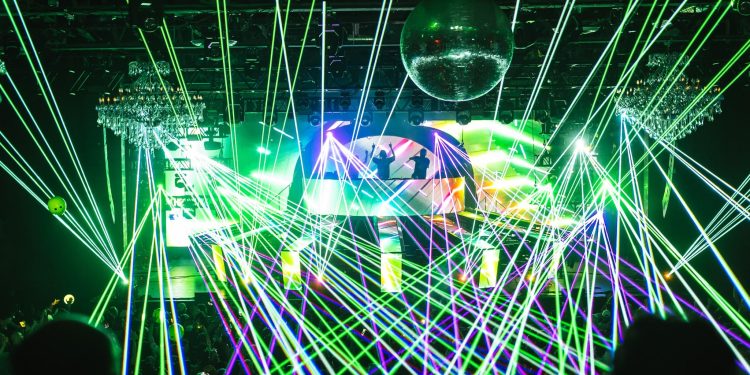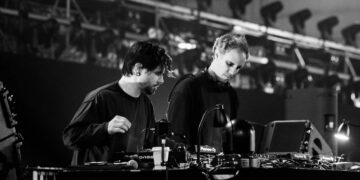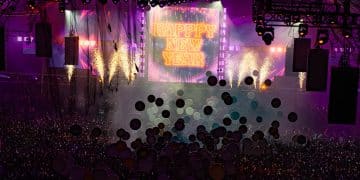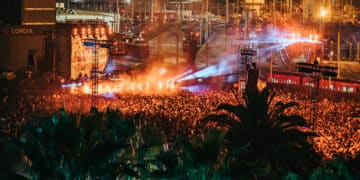Sammy Virji, one of the leading voices of UK garage, offered a night of charge and bliss at his Forest Hills Stadium debut.
In a scene where signature traits — say, deadmau5’s helmet or Marshmello’s mask — help producers stand out, Sammy Virji sets himself apart by embracing a more human route: He leads with his smile.
His grin shows up like a watermark in the many clips and photos that circulate online. It’s an expression is so infectious that scrolling through his social posts feels less like fandom and more like cheering on a close friend. It’s a refreshing change of pace to witness an artist in giddy and authentic form.
Naturally, his music is largely responsible for the bubbly persona. Take, for example, “Find My Way Home.” The record is about loneliness, yet it sparks with syncopated beats and uplifting melodies that in turn change the message of the lyrics into one of hope. Or listen to “If U Need It,” whose UKG elements and vocal pitch changes lend it a rhythmic bounce, transforming the song into a soulful and playful anthem. In other words, Virji’s discography invites joy.
This is why his vibrant UKG sound has resonated across dancefloors from around the globe, leading to debut appearances at Coachella and Movement, as well as milestone performances alongside such notable producers as Four Tet.
On Saturday, June 14 — a day marked by coast-to-coast protests and raids that targeted Los Angeles’ immigrant communities — Virji took the stage at Forest Hills Stadium in New York, his first-ever stadium performance. Although the social backdrop weighed heavily, the show invoked an atmosphere that encouraged the crowd to rest and heal through dance and music.
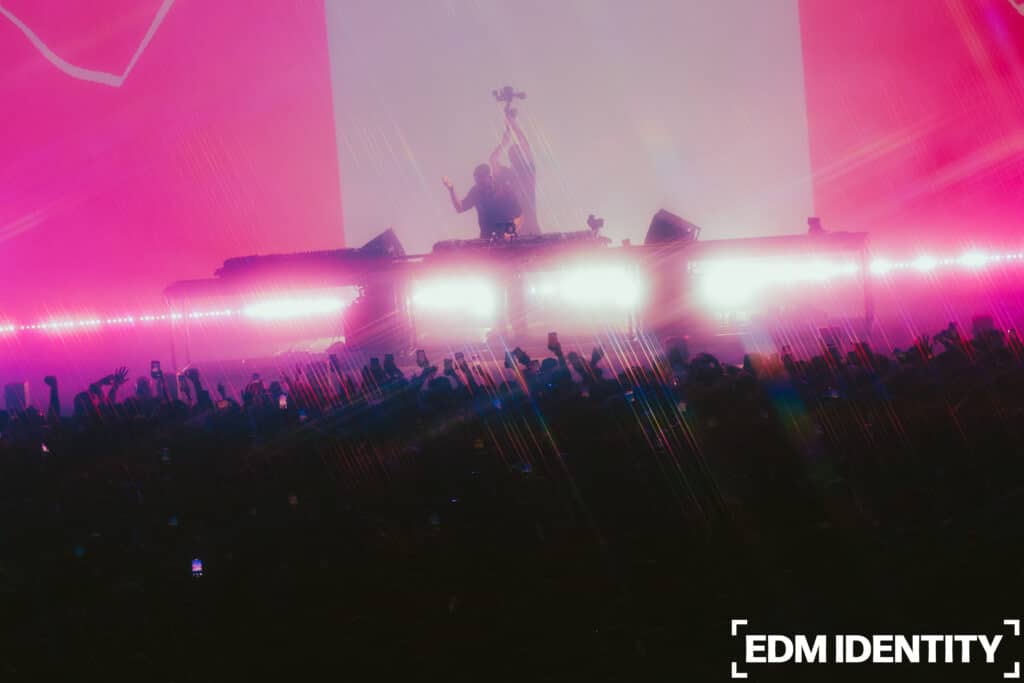
For Sammy Virji, there’s no need for a mask or a pedestal — just a smile, a beat, and the kind of joy that brings people together.
The stage setup that evening was pretty simple: a long table with DJ equipment, which was also shared by Virji’s openers, and a massive rectangular LED screen in the background. Rather than using an elevated platform, something most headliners tend to do, Virji stood close to the crowd, almost at eye level, offering an intimate shape of connection.
From the moment the first note hit, the stadium bounced with a cheerful vibration. In those two hours, Virji’s setlist was a surge of euphoric anthems — “Toxic,” “The Days“ (Notion Remix), “I Guess We’re Not the Same” — paired with visuals in saturated, psychedelic tones. Acidic greens, pulsing oranges, and melting reds covered the crowd in color as pyro hits and confetti bursts punctuated the highest hits of the night. During certain moments, the crowd stomped their feet in rhythm. The music didn’t just move people. It connected them.
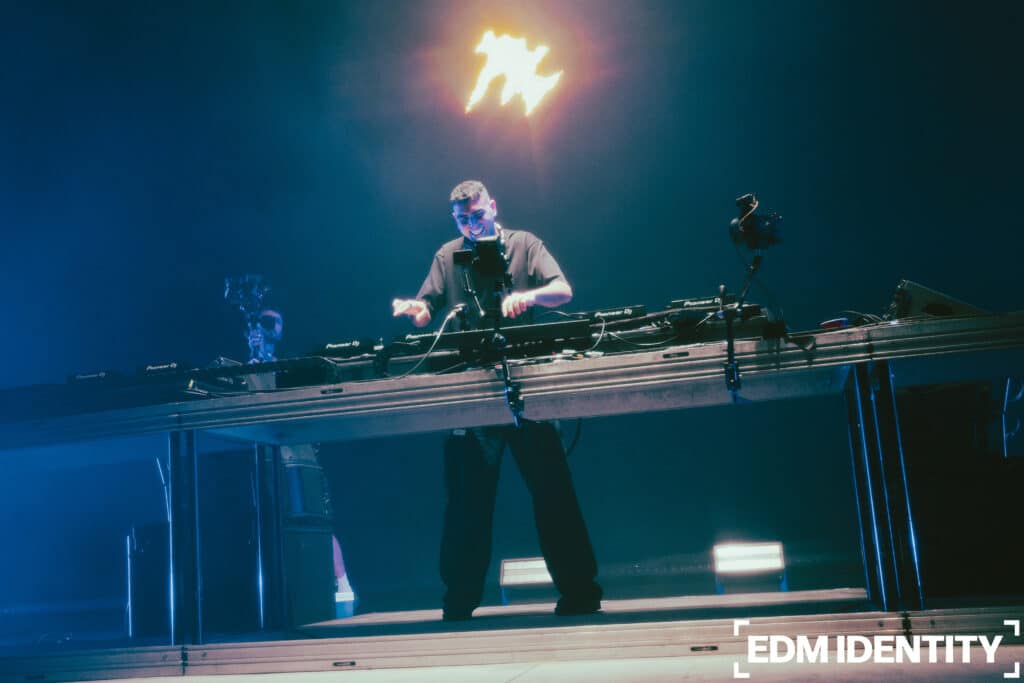
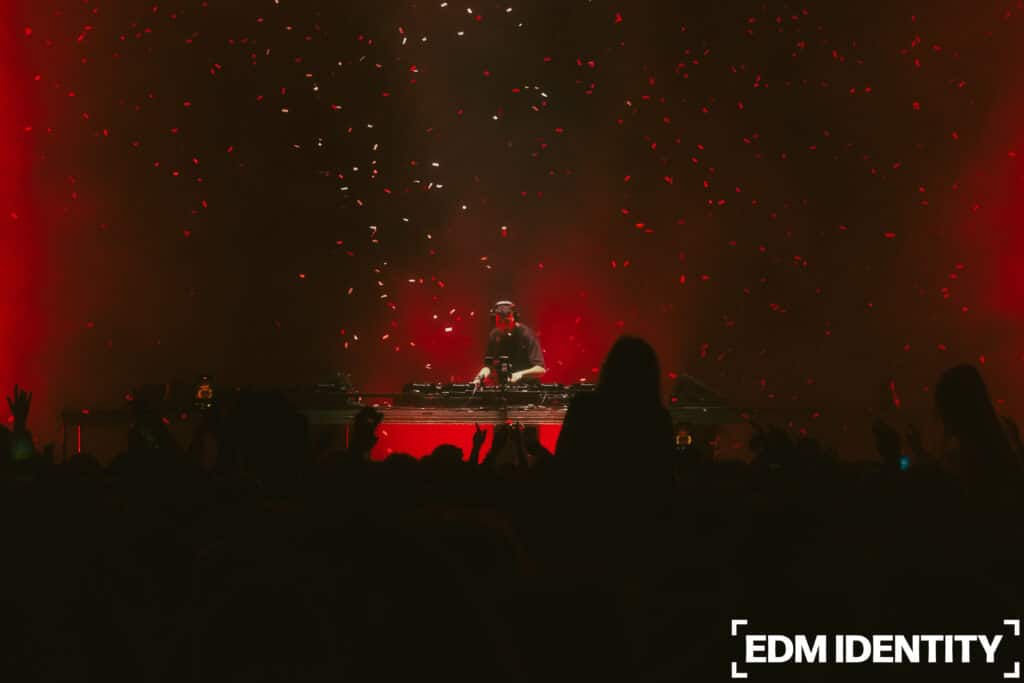
Throughout the performance, Virji hardly spoke on the mic. When he did, it was to offer gratitude, not the common “Hands in the air” command. His signature smile, as bright as ever, almost never left his face. Looking around, you could see that everyone was also smiling back at him. On a day when anxiety and division felt unavoidable, Virji’s performance served as a counterpoint: a communal space to meet joy head-on, not as a way of distraction, but as something as urgent and necessary.
How Virji presents his music and presence collapses the distance between artist and audience. There’s no mask to peer through, there’s no pedestal to reach. Only a smile, a beat, and a sound that reminds us that music, much like joy, is borderless.
Follow Sammy Virji:
Website | Facebook | X | Instagram | SoundCloud | YouTube | TikTok



